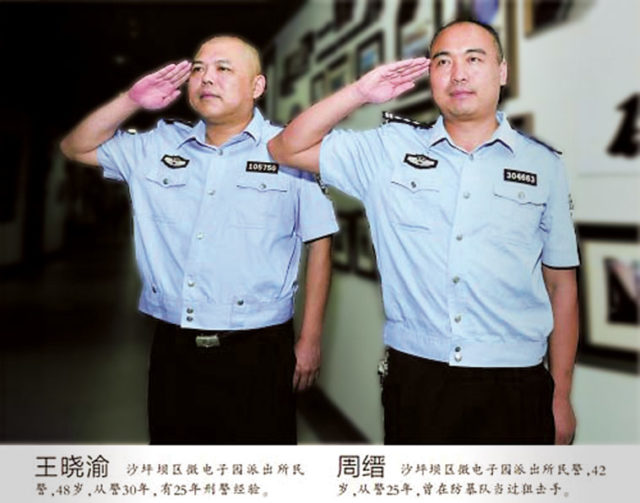In December 2012, the Qinghai Legal News (Qinghai fazhi bao 青海法制报) — a newspaper from the northwest province of Qinghai — published a list of China’s ten biggest criminal cases of the year. The selection included cases involving massacre, homicide, fraud, corruption, a religious cult and sex slavery:
1. Naw Kham and the Massacre of Chinese Sailors
Myanmar national and criminal overlord of the Mekong river basin, Naw Kham, was extradited to China, where he was sentenced to death on 6 November for the massacre of Chinese sailors on the Mekong River.
2. The Trial of Bogu Kailai and Zhang Xiaojun
The spectacle of the Bogu Kailai murder trial occurred in the Hefei Intermediate People’s Court in Anhui province on 20 August. Bo Xilai’s wife, Gu Kailai, known in the state media as Bogu Kailai, and her accomplice, Zhang Xiaojun, were found guilty of planning and carrying out the murder of British businessman Neil Heywood in Chongqing in November 2011.
3. Wu Ying’s Fundraising Fraud
In 2009, a court in Zhejiang found that from May 2005 to February 2007, while acting as the legal representative of a firm in Zhejiang province, Wu Ying had defrauded around 770 million yuan. Sentenced to death, she appealed. Her appeal was rejected, but in April 2012 the Supreme People’s Court sent the case back to the lower court in Zhejiang, which deferred the death sentence by two years. A significant factor in Wu Ying’s reprieve was an online campaign for her to be spared the death penalty.
4. The Gansu School Bus Accident
On 16 November 2011, a minibus from the Little PhD Kindergarten 榆林子镇小博士幼儿园 in Shaanxi province was travelling in Gansu province when it collided head-on with a goods van. The minibus could legally carry nine people, yet no fewer than sixty-four people including sixty-two children were crammed inside at the time. Nineteen children and two adults died in the accident; forty-three other children were injured. In July 2012, a court in Gansu sentenced Li Jungang — chairman of the board of the kindergarten — to seven years’ imprisonment. The case became a cause célèbre on the Internet. Commentators drew pointed comparisons between China’s generally shoddy school buses and the gift by the Chinese government to Macedonia, publicised around the same time as the Gansu accident, of several high-end school buses.
5. The 488 Million Yuan Sichuan Pyramid Scheme
In 2009, Chen Lijun set up the company Sichuan Xingfuyuan Agricultural Development Limited 四川省幸福缘农业开发有限公司 to manufacture nutritional products. Within a few months, the company attracted 150 million members across China, who had invested a total of 488 million yuan in what turned out to be a massive pyramid scheme. In June 2012, a court in Sichuan sentenced Chen to ten years in jail and imposed a fine of five million yuan.
6. Luoyang Sex Slaves
In August 2009, Li Hao, a civil servant, excavated a burrow underneath the cellar of his house in Luoyang, Henan province. Luring six women aged between sixteen and twenty-four, he imprisoned them, raped them and forced them to perform in pornographic shows on the Internet. In 2010, Li murdered one of the women, and in June or July forced three of the remaining women to kill one of the others. He was caught in 2012 after one of his captives escaped. On 30 November 2012, the Luoyang Intermediate People’s Court sentenced Li to death for murder, rape, organising prostitution, detaining people against their will and manufacturing and distributing obscene materials.
7. Liao Dan and the Fake Treatment Form
After paying for six months of expensive dialysis treatment for his wife, Liao Dan found someone to fake a treatment form for his wife at Beijing Hospital (run under the auspices of the Ministry of Health) that would entitle her to obtain dialysis free of charge. He got away with it for four years, avoiding 1.7 million yuan in hospital fees. Although Liao Dan attracted much sympathy from people online, in December 2012, a court in Beijing sentenced him to three years in jail for fraud and an additional fine of 3,000 yuan.
8. Almighty God Cult
On 30 October 2012, a court in Inner Mongolia charged eight people with being members of Almighty God (Quannengfu jiaohui 全能父教会), what the court called a ‘cult organisation’. Almighty God is a heterodox, millennial Christian cult that teaches that the new messiah is a woman from north China. The newspaper article refers only to ‘Almighty God’ but other reports specify that the eight accused were members of Eastern Lightning (Dongfang shandian 东方闪电) — an offshoot of Almighty God. On 14 December, one week before Eastern Lightning literature predicted the world would end, the court handed down sentences ranging from four to five years.
9. Zhou Kehua
Zhou Kehua was an armed robber and murderer. Originally from Chongqing, he had been on the run from the law since 2004, committing robberies during which at least six and possibly as many as twelve people died. He was cornered by the police in Chongqing in August 2012 and shot dead.
10. The Mayor of Haitang Bay in Sanya Loses 700 Million Yuan
In June 2011, a series of irregularities in compensation awarded to villagers in Haitang Bay in Sanya, Hainan province, whose land had been confiscated for the building of luxury resorts, came to light. In December 2012, the Hainan provincial party disciplinary authorities announced that the mayor of Haitang Bay, Li Ji, had accepted bribes of more than fourteen million yuan and was additionally responsible for the loss of 700 million yuan from government coffers. A court in Sanya subsequently sentenced Li to death, but deferred the sentence for two years.



